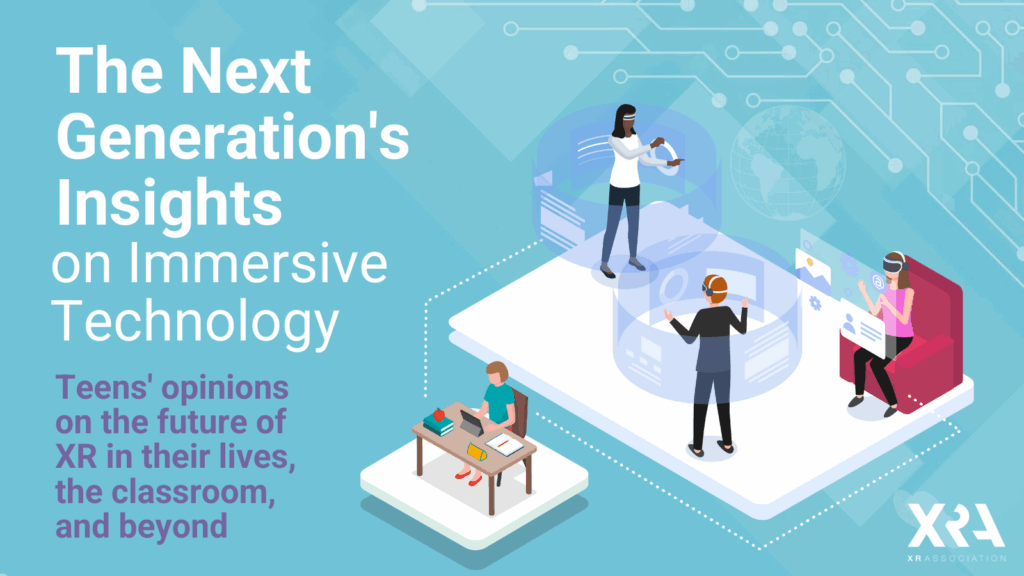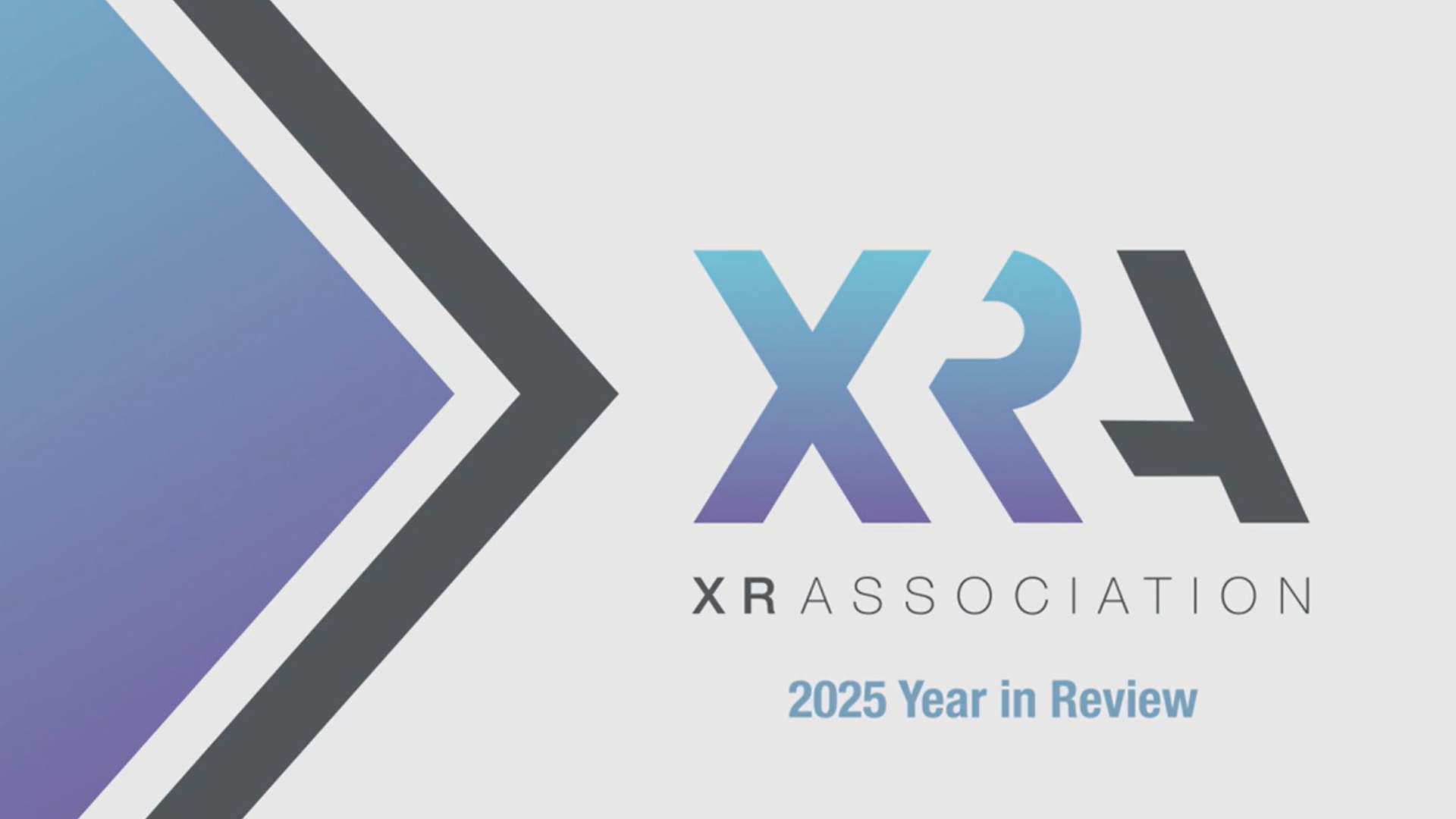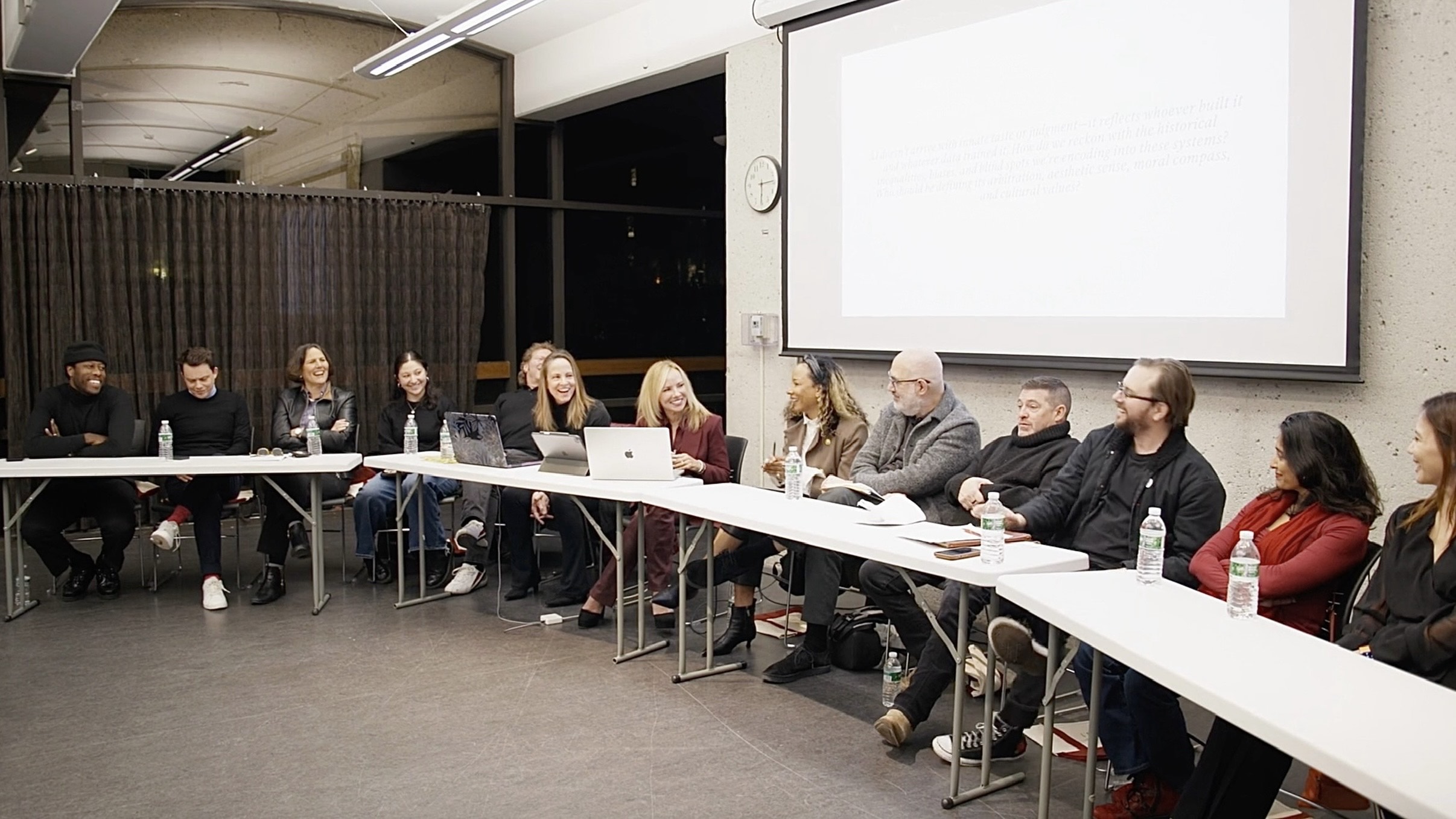XR ASSOCIATION HIGHLIGHTS POLICY, INCLUSION, AND ENTERPRISE ADOPTION AT AWE 2025
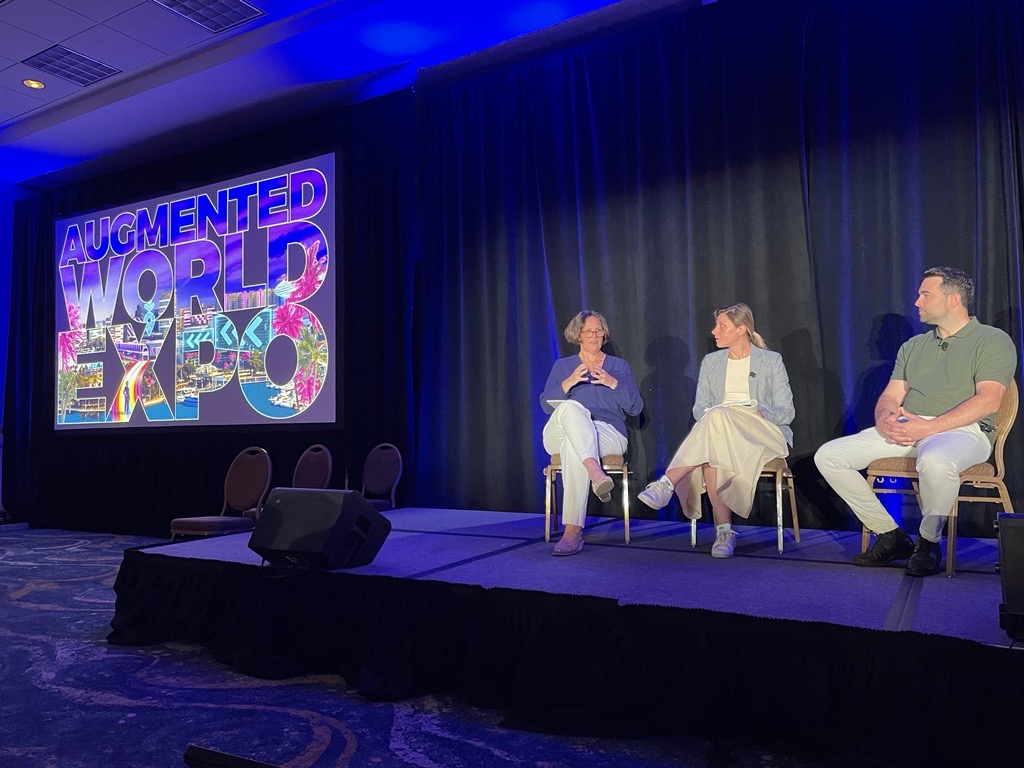
Long Beach, CA — Leaders from the XR Association (XRA) took the stage at the 2025 Augmented World Expo (AWE) to spotlight the future of immersive technology discussing policy priorities for the XR industry, accessibility and inclusion, and enterprise adoption.
On Tuesday, June 10, XRA CEO Elizabeth Hyman moderated the panel “Policy Priorities for the U.S. XR Industry,” highlighting the legislative frameworks needed to support innovation and maintain U.S. global leadership in immersive tech. Hyman was joined by Andres Castrillon, Senior Director of Government Affairs at Qualcomm, Kristi Woolsey, Global Lead XR at BCG, and Jeremy Luby, Director of Strategy at Chocolate Milk & Donuts.
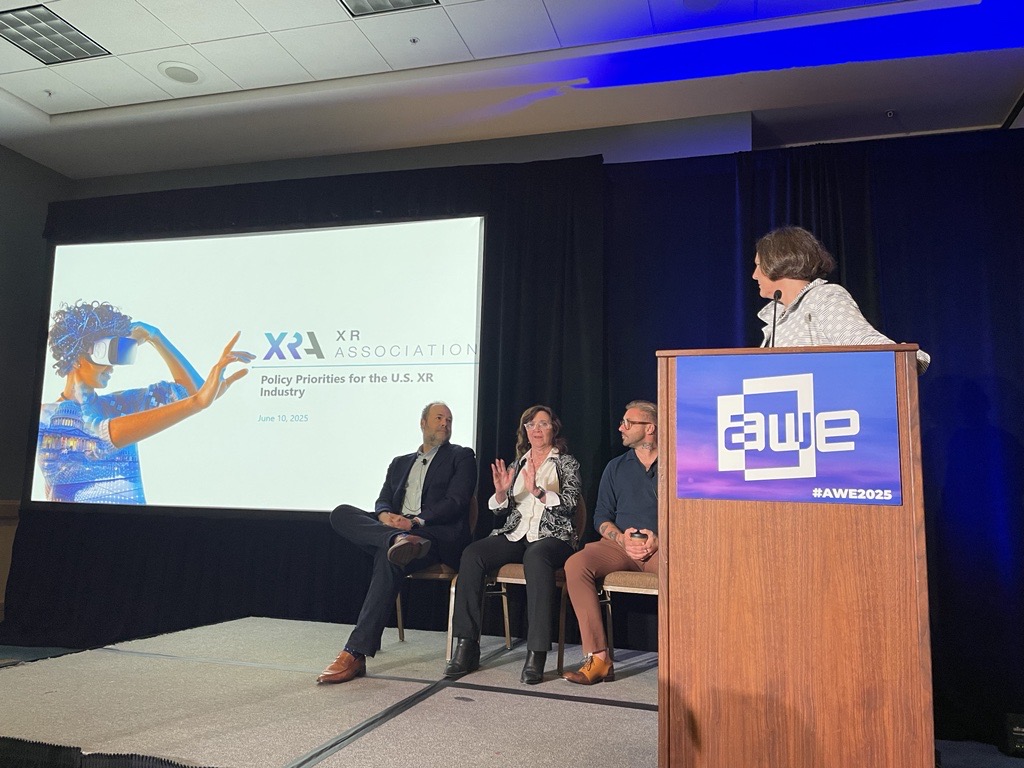
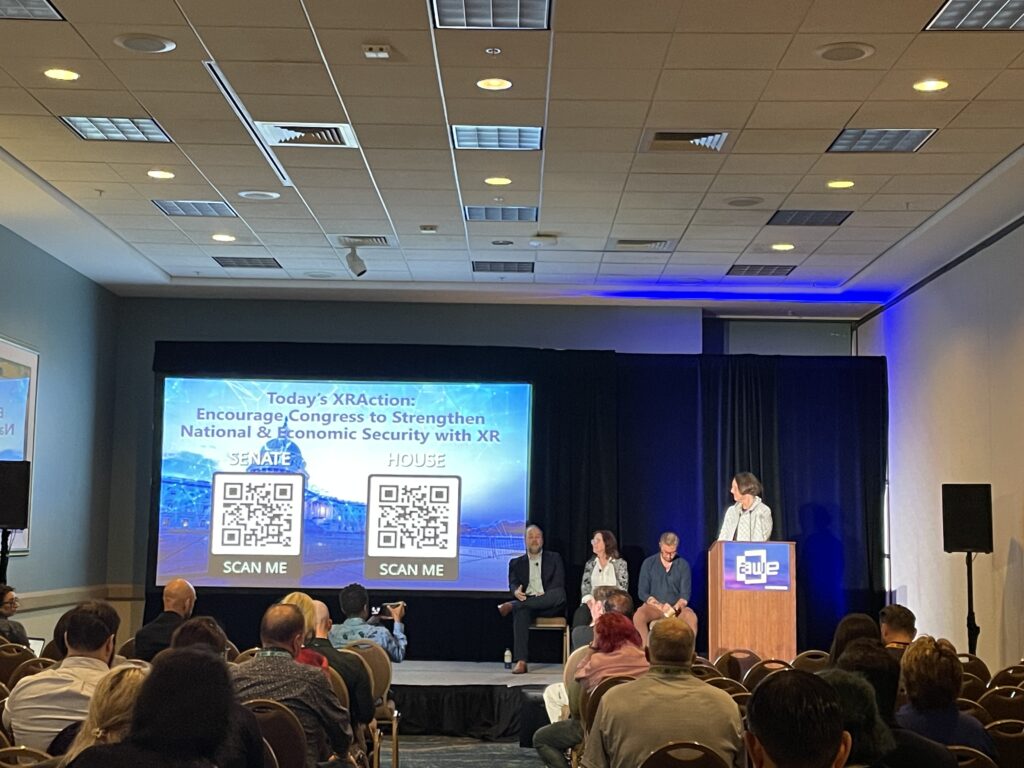
Panelists discussed the recent reintroduction of the bipartisan United States Leadership in Immersive Technology Act of 2024 and emphasized the importance of incorporating XR into national AI strategies. The conversation also addressed geopolitical competition, supply chain resilience, and R&D investment.
Later that afternoon, Stephanie Montgomery, XRA’s Senior Vice President of Research and Best Practices, joined a panel titled “Stronger Together: Accessibility & Diversity in a Post-DEIA XR Landscape.” Alongside Dylan Fox, Director of Operations at XR Access, Leona Edegbe, XR Enthusiast and Product Manager at Microsoft, Devin Baldwin, WebXR Developer/Educator at The Devinci Code, and Dr. Ruth Diaz, Community Designer at BridgeMakers.world. Montgomery underscored the value of investing in inclusive practices, even amid shifting DEIA mandates.
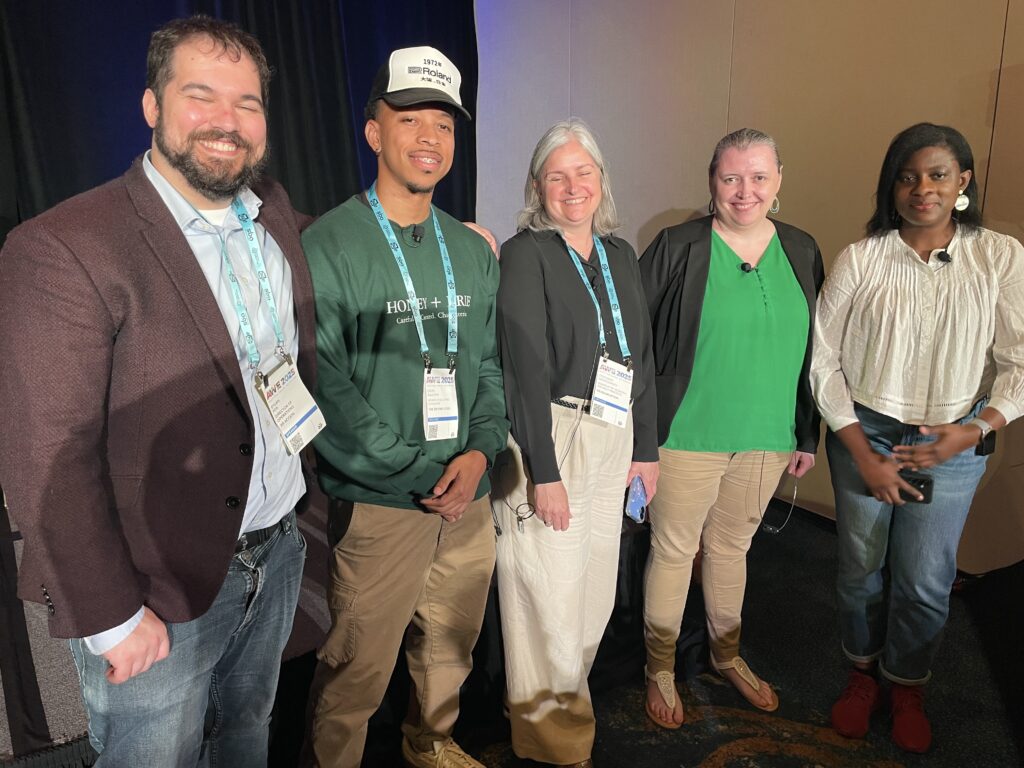
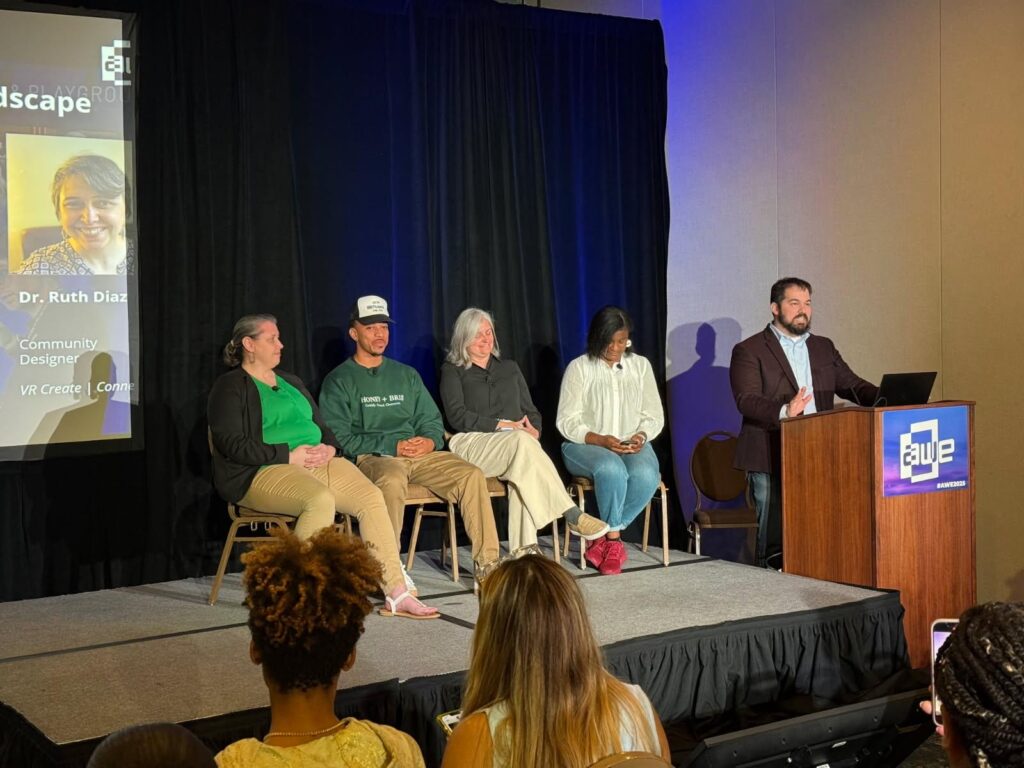
The panel challenged common misconceptions and made the case that accessibility and diversity are drivers of creativity and organizational strength, not just compliance.
On Wednesday, June 11, Hyman returned to the stage for the session “XR in Enterprise: The Role of Augmented Reality in Industry – Going ‘Operational.’” She was joined by Rana Dalbah, Senior Director of AI and Data Governance at BAE Systems Inc. and David Moreno, Chief BD and Marketing Officer at Virtualware, to examine how industries, particularly logistics, are transitioning from experimental use of AR to full-scale operational deployment.
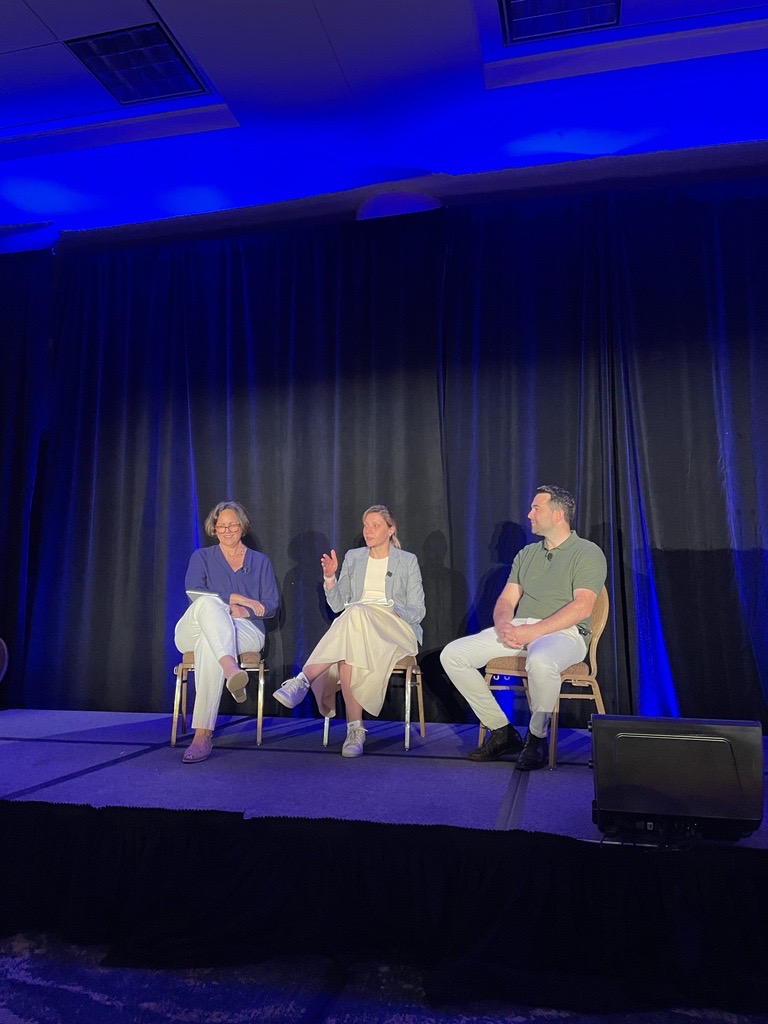
The discussion highlighted how enterprise adoption of smart glasses and wearable XR tools is becoming a cornerstone of digital transformation strategies, fueled by product innovation from companies such as Meta, Snap, and Amazon.
Throughout the expo, the XR Association welcomed attendees to its booth, where visitors explored the organization’s latest resources. XRA also spotlighted findings from its 2025 teen survey, “The Next Generation’s Insights on Immersive Tech.” The report offers a look at teens’ evolving views on the role of XR in their lives, the classroom, and beyond. Based on responses from 600 teens ages 13 to 19, the survey found that 63% expressed growing enthusiasm for XR, with VR maintaining strong favorability.
